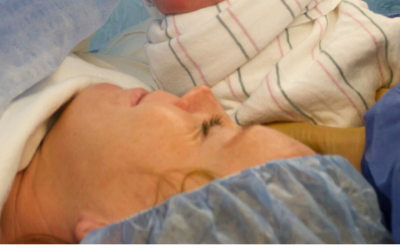
How does pre-pregnancy body mass and time between pregnancies affect preeclampsia risk?
The additive effect of interpregnancy interval and maternal body mass index on pregnancy- induced hypertension in the U.S.
Both pre-pregnancy body mass index (‘BMI’, a calculation using height and weight) and time between pregnancies (‘interpregnancy interval’) have been shown in studies to be linked to pregnancy-induced hypertension, including preeclampsia. For this study, researchers were able to use a large dataset from the Vital Statistics Natality Data of over one million births in the United States to ask: how do a pregnant woman’s BMI and interpregnancy interval combine to increase or decrease a woman’s risk for pregnancy-induced hypertension?
The researchers found that both higher BMI and longer interpregnancy interval were linked to an increased chance for pregnancy-induced hypertension. The group with the largest increased risk (a 4-fold increase) were women with obesity (defined as a BMI over 30) and a long time between pregnancies. This research supports previous studies showing that these two risk factors can each independently increase a woman’s chance for preeclampsia. This study is important because a woman’s body mass index and timing between pregnancies are “modifiable” risk factors - meaning women could change their weight or their pregnancy spacing to lower future risk of preeclampsia. While women cannot change their genetics or their pregnancy history, factors such as these can be discussed with their doctors and might offer strategies to lower future preeclampsia risk.
LINK: https://pubmed.ncbi.nlm.nih.gov/34052607/
About Research Roundup
Each quarter, our team of researchers reviews the most current studies related to hypertensive disorders of pregnancy and selects those studies they feel will be of greatest interest to our community to summarize.
Special thanks to our volunteer research team, who under the leadership of Dr. Elizabeth Sutton, make Research Roundup possible: Alisse Hauspurg, MD Felicia LeMoine, MD Jenny Sones, PhD, DVM, and Robin Trupp, PhD, RN.
Related Articles

Your story is needed to improve outcomes for moms like you. Add your voice to critical preeclampsia research to ensure that every story is heard.

Frequently asked questions about the Preeclampsia Registry, a patient-driven registry and biobank.

The Preeclampsia Foundation offers research funding, study recruitment, and other patient engagement services to researchers.

We provide research grant funding to advance progress towards detection, prevention, or treatment of preeclampsia, HELLP syndrome, and other hypertensive disorders of pregnancy.

How does preeclampsia affect health after pregnancy? Preeclampsia doesn’t always end with delivery. It is now recognized as an early warning sign for future cardiovascular disease. Women who h...

Recent findings in preeclampsia research have shown that preeclampsia likely has at least two variants – an early onset and a late onset variant. Early onset is typically defined as before 34 we...

Preeclampsia is a pregnancy complication marked by new-onset high blood pressure and signs of stress on organs such as the kidneys, liver, and brain. While much attention is often given to preterm dis...

Preeclampsia is a serious problem that can happen during pregnancy. It often affects the brain and can cause headaches, vision problems, strong reflexes, and seizures (called eclampsia). In this study...

Pregnancy offers a unique window into a woman’s future heart and cardiovascular health. Conditions such as hypertensive disorders of pregnancy (HDP) which include gestational hypertension, preec...


